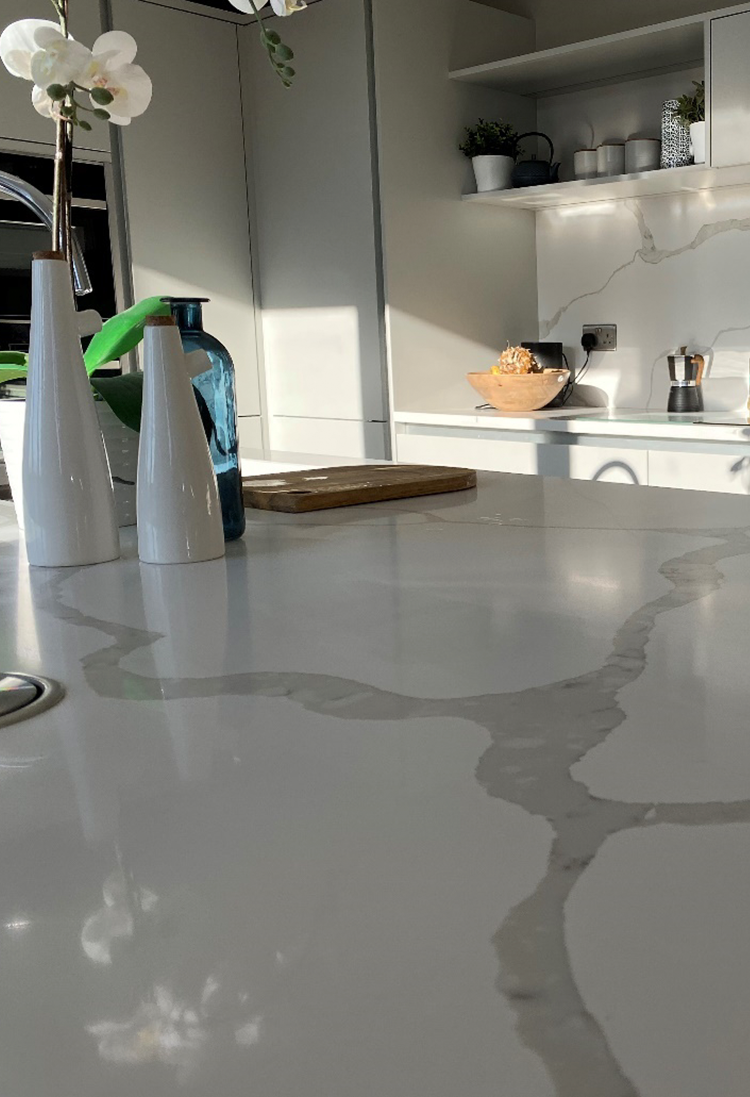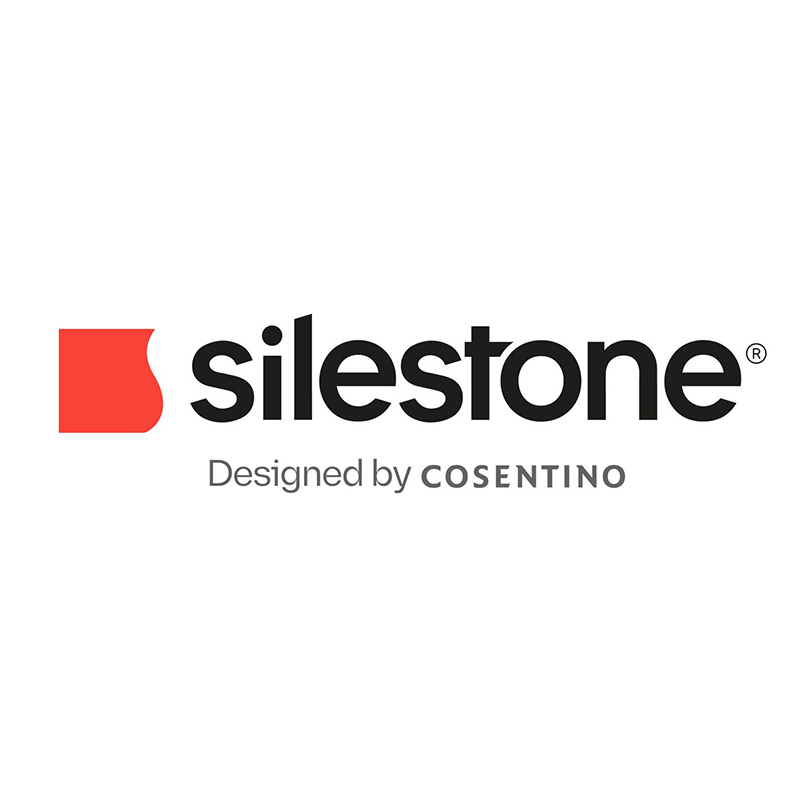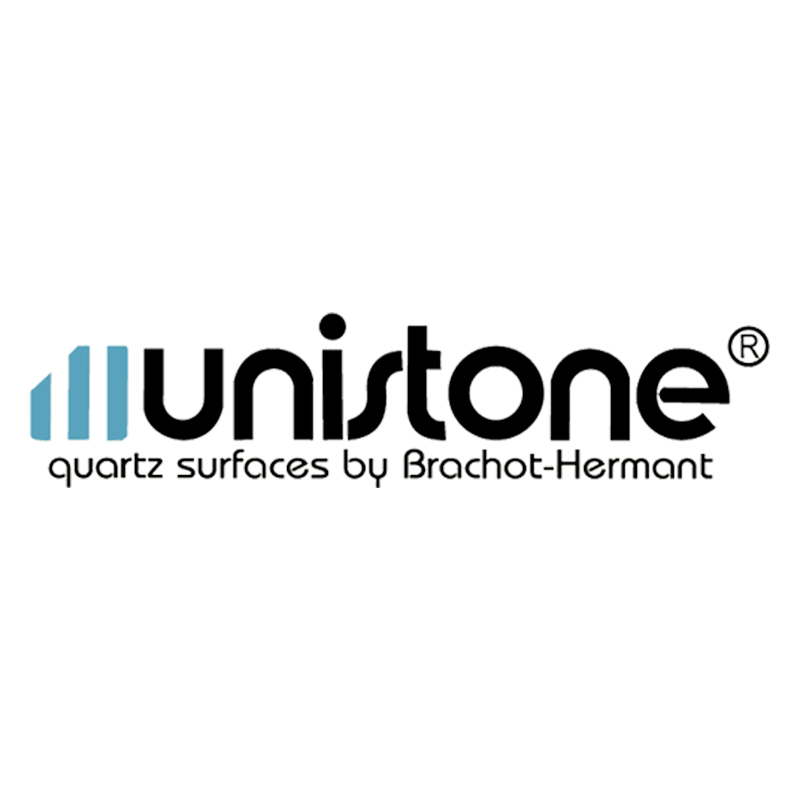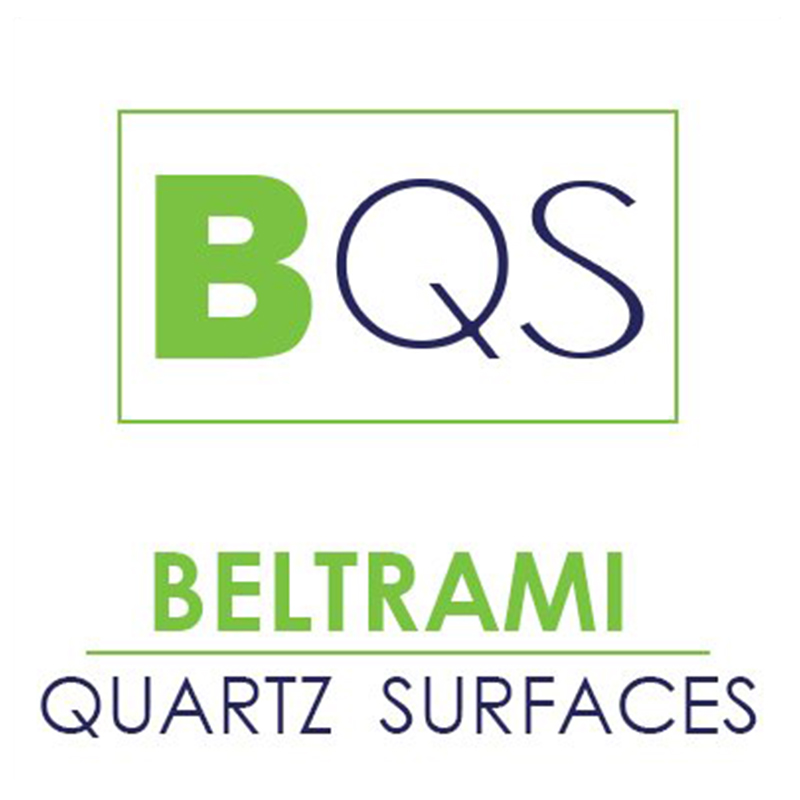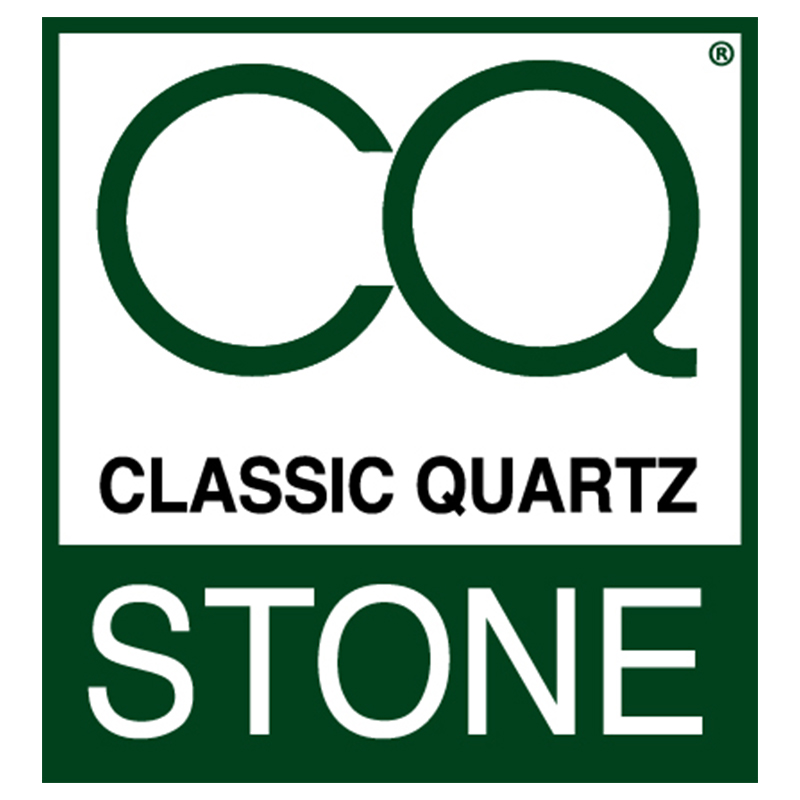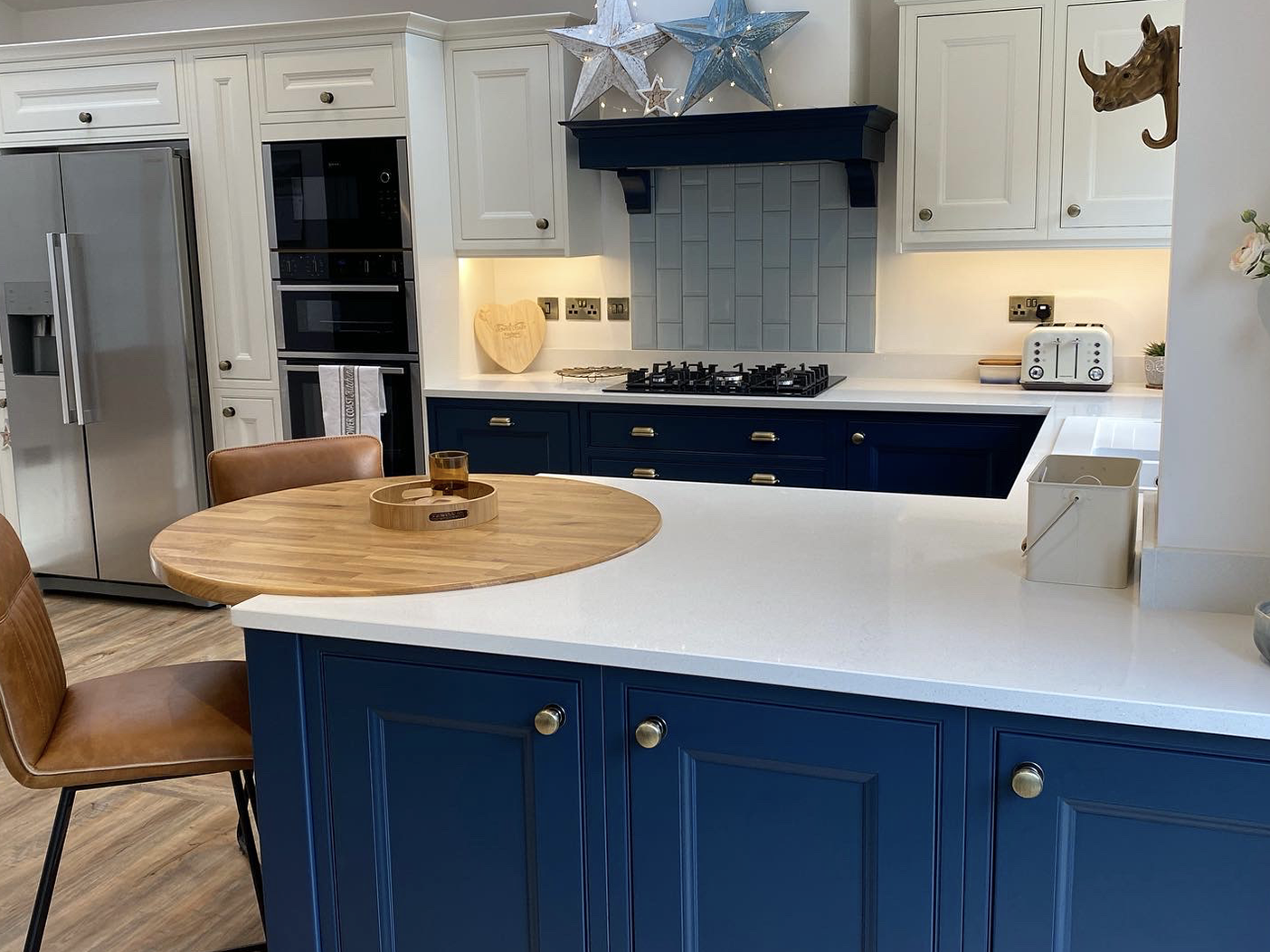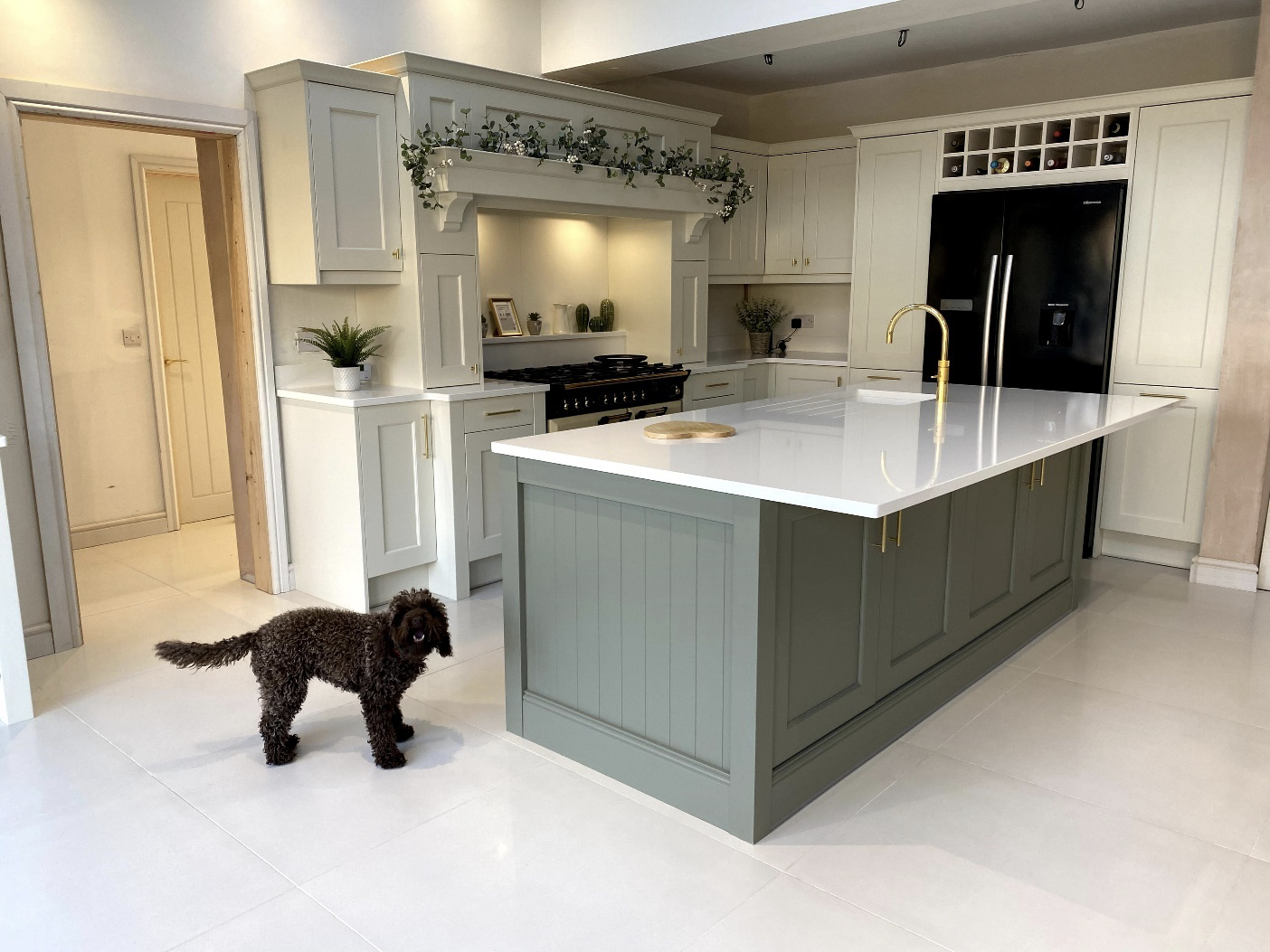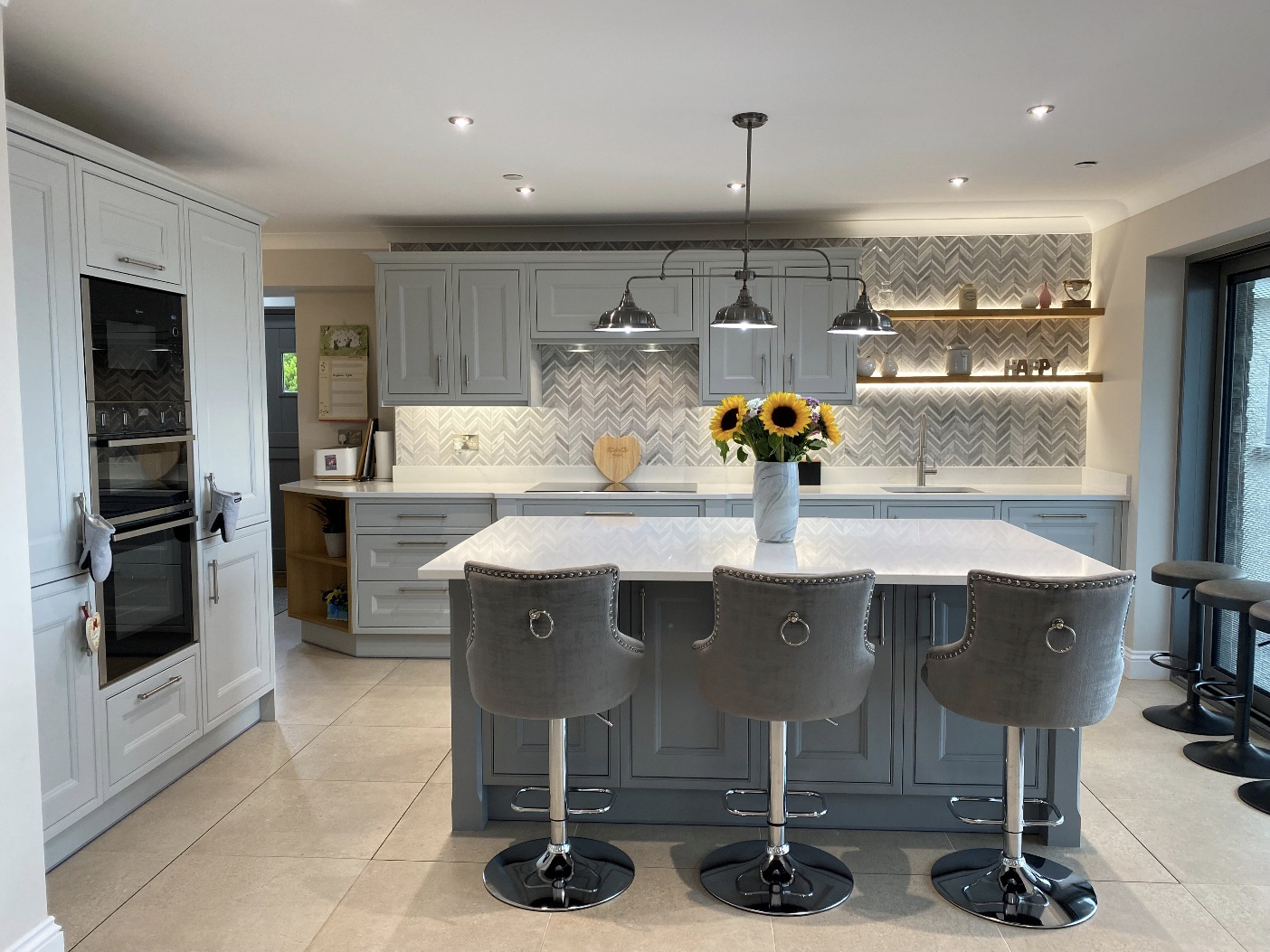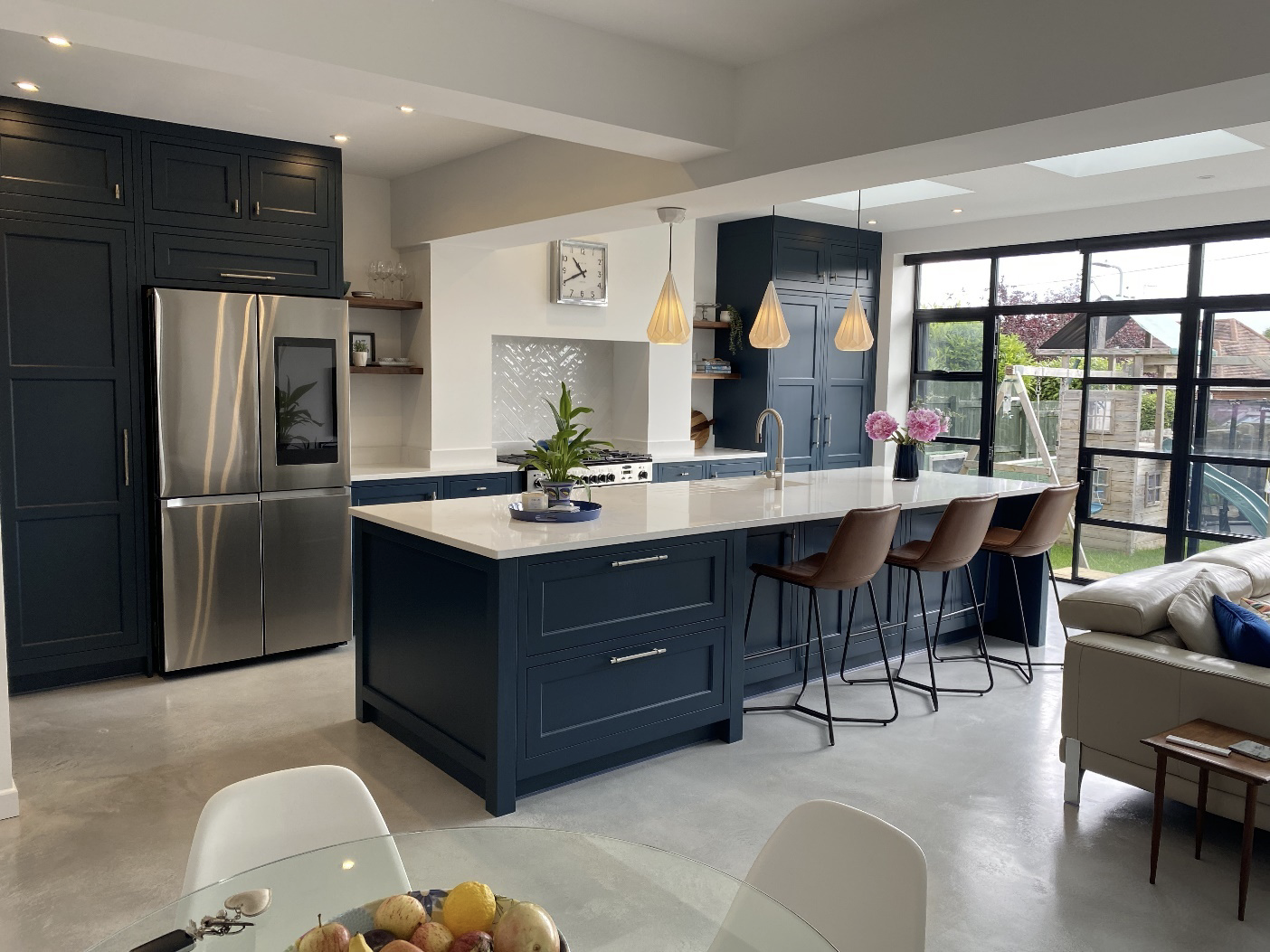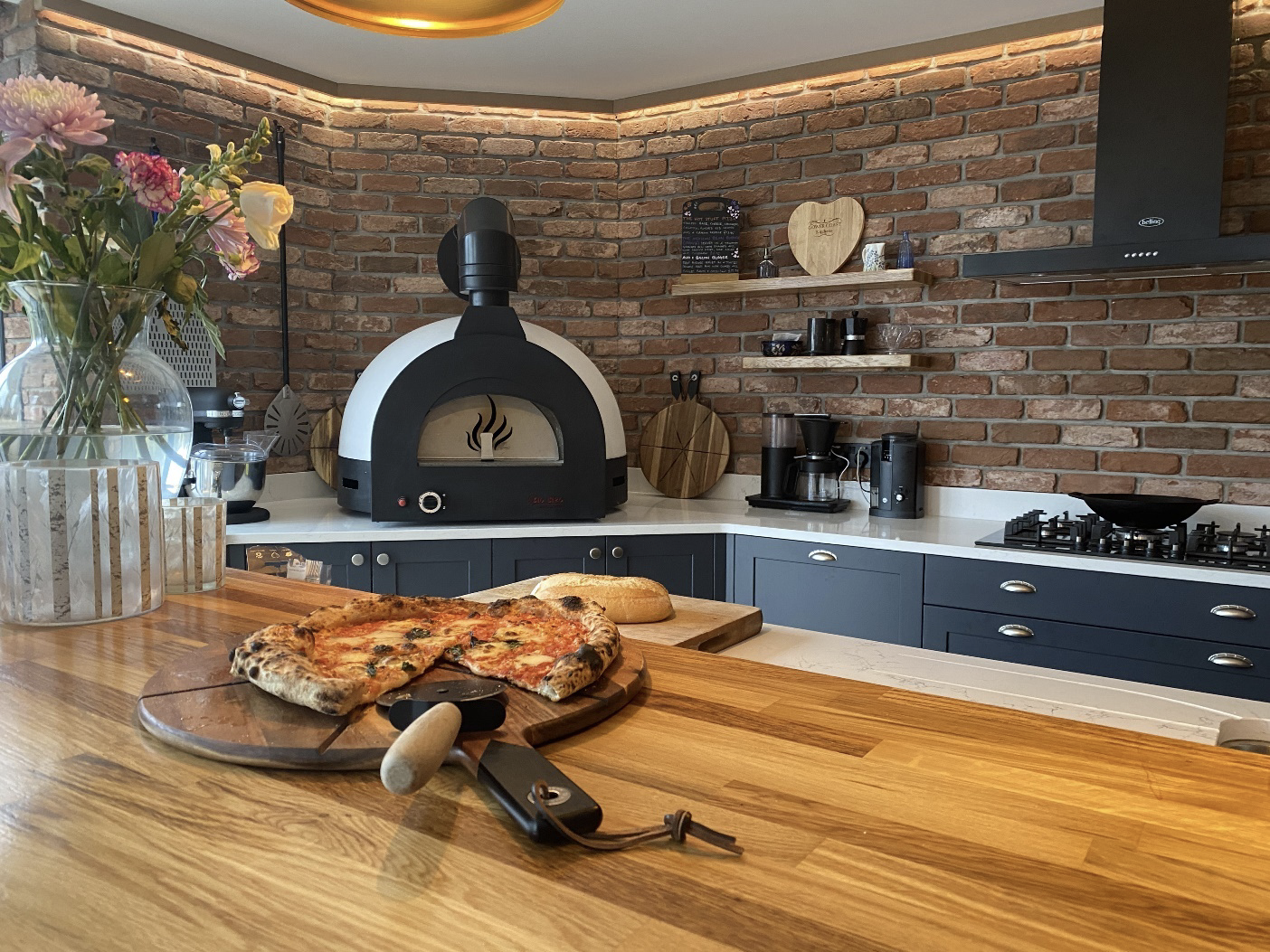QUARTZ
Quartz, or engineered stone as it is sometimes referred, is essentially a manmade material manufactured from crushed waste granite, marble or stone etc, with added synthetic and organic polymer resins as binders. It is heated and shaped into hard slabs resembling real stone, which can be uniquely designed and finished in a vast variety of colours and patterns that may not be available naturally. These often flamboyant and modern finishes can be easily replicated, and are potentially more consistent in colouration than natural granite or marble.
Quartz is most commonly available in 20mm or 30mm slabs, in varying sizes, where there is also a choice of finishing, by cutting the edges in a particular style such as bullnose, chamfered etc, or by altering the surface texture. Quartz is predominantly polished with a glossy sheen, but can also be textured or honed, creating a matt finish, or leathered for a more natural or rustic looking matt surface.
A further important characteristic of quartz is that it is very low or non-porous, so that is beats granite and marble in terms of resilience to staining and harbouring bacteria, making quartz a great material for countertops. Quartz work surfaces are now generally more popular than granite, and it continues to take over granite’s share of the market.
Even so, no work surface material can be perfect, and one downside to quartz, is that it can only tolerate heat to a certain point, so can be damaged by contact with something very hot. It can also crack, chip and scratch when knocked or scaped severely, and can be more costly than other types of work surface.

